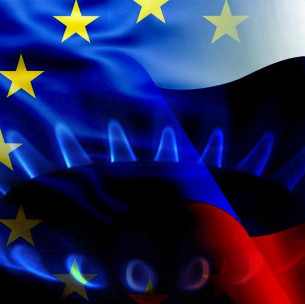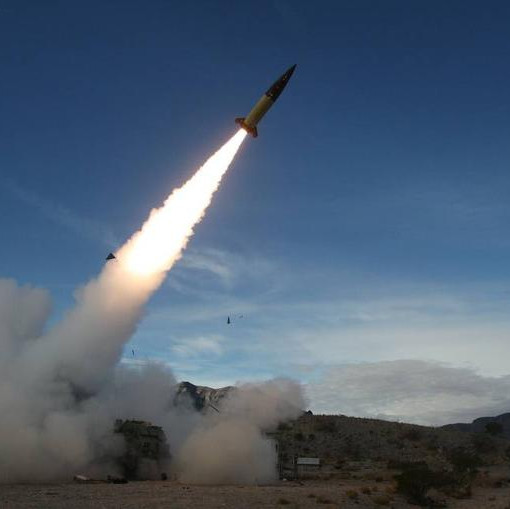However, as soon as the Company started practical implementation of the project its engineering and construction faced many obstacles that resulted in an almost one-year delay in commencement of the subsea pipeline construction, from this March to mid 2009. What is the reason of the delay?
A key reason is a position of the United States that under pretence of ecological security of their European allies exploits individual European countries (Poland, Lithuania, Latvia, Estonia) and pursues a policy aimed at weakening not only Russia but also the European Union , because establishment by the European Union of beneficial relationships with Russia radically increases the economic potential and capabilities of the Union versus the United States that fails to coincide with the interests and influence of Washington in the European continent. In the context of counteractions to the construction of pipeline “Nord Stream” the United States claims that this project will aggravate dependence of Europe on Russia, at that not only economical dependence but also political one.
The assessments of the Nord Stream Project by Washington practically 100 per cent similar to those of Poland and Baltic countries, faithful guards of the American policy in Europe. Estonia is utmost active. In May 2007 it refused to receive Nord Stream Chairman of the Board (former German Chancellor) Gerhard Schroeder and discuss with him recommendations of Finland on the pipeline route within the Estonian economic zone of the Gulf of Finland. And in September Estonia refused to grant a clearance to conduct a survey of the sea floor belonging to Estonia in the interests of the Nord Stream Project.
A key goal of such unwise actions of the Estonian Government is ”to annoy Russia” (to please the overseas patrons). However, in the opinion of Estonian Academician Mikhail Bronstein by this actions Estonia made harm first of all to itself because it missed a chance to have a wide-scale survey of its sea area performed at somebody’s expense and at a high professional level, and meanwhile to take a step towards improvement of the Russian-Estonian relations that are far from being good. The respective statements and actions were made also by Poland, Lithuania and Latvia.
Further developments showed that the EU newcomers pursuing the anti-Russian energy policy under the pretence of Baltic ecology protection , and in so doing having taken a hard-line stand with respect to gas pipeline Nord Stream actually stay in opposition to both “powerful founders of the Union” (Germany, Denmark, Great Britain, France and the Netherlands) that advocate the Nord Stream Project, and to the European Union in general. Poland, Lithuania, Latvia and Estonia even requested in writing the European Commission to support ground construction of the pipeline instead of the subsea construction. Moreover, they requested the EC to fund this ground project.
It seems that the new Polish government follows the policy of the previous government with respect to pipeline Nord Stream. Prior to departure to Berlin for negotiations with Chancellor Angela Merkel Polish Prime Minister Donald Tusk claimed that Warsaw is going to convince Berlin and Moscow to revise the concept of the pipeline. In particular, Tusk said: “I am sure that it is possible to find less expensive and safer solution both for the EU and Russia… I don’t want to beat the gun but I see now that the number of arguments in favor of other Nord Stream concept is increasing and the number of its supporters is decreasing”.
However, it is not true. Only a few countries in Europe share the anti-Russian energy policy in the Baltic region, and their number decreases in time. It worth noting that the anti-Russian demarche is not supported first of all in the EU HQ advocating the official stand that the Nord Stream Project plays a key role in establishment of the most important transborder gas transport facilities to provide for sustained development and energy security of Europe.
On December 20, in Tallinn President of the European Commission Barrozo once again said in favor of the Nord Stream Project: “We believe that the gas pipeline project should be supported. This project not only connects Russia and certain EU countries but it is also important for the entire European Union”. The EC President reminded that the Nord Stream pipeline is a component of the entire energy system implemented by the EU from September 2006.
In turn, Chancellor Angele Merkel claimed with reference to international documents that in spite of the problems facing the project it will be constructed in due time. It is clear that the opposite arguments of the Polish Premier were not convincing to the German Chancellor.
After all requirements of the ecological community and Swedish Government were satisfied, and expected Nord Stream ROW was inspected in detail, Prime Minister of Sweden Fredrik Reinfeldts claimed that his country sees no problem in construction of the gas pipeline within its economic zone.
By the way Prime Minister of Finland Matti Vanhanen said recently in his interview to an Estonian newspaper that the Nord Stream is needed by Europe, its construction is stipulated by the program of cooperation with Russia and creates no security problems.
The fact that Dutch Company N.V. Nederlandse Gasunie joined the Nord Stream Project in November is one of a major achievements of the project. Now Joint German-Russian-Dutch Enterprise Nord Stream AG will be in charge of works at all stages of project implementation from engineering and construction to operation of the subsea part of the pipeline.
As for the cost-efficiency of the “ground option” advocated by Poland, according to estimates of experts, “the subsea option” will be approximately 15 per cent cheaper than “the ground one” due to resource-saving in operation. The safety and security of the gas pipeline will be also adequately ensured. Inspections of the sea floor within the ROW showed that for instance there were not ammunition or chemical weapons found within the Swedish part of the ROW. The pipe itself will be strong enough, it will have a 4-cm thick wall coated with a 15-cm reinforced concrete jacket that may resist even the impact of a sinking ship.
So, we may come to a conclusion that the opposition of Poland and Baltic countries to the construction of gas pipeline Nord Stream is hopeless. They failed to undermine the construction. However, the forces opposing Russia yet received their “minute of glory” because their actions have resulted in the aforesaid one-year delay in commencement of subsea pipeline construction. It was recently confirmed by the Nord Stream company management. In so doing, they promised that the deadline of Russian “blue fuel” supply to the Western European consumers, i.e. 2010, stipulated by the contract will not change due to a higher pipeline construction rate.
Apparently, the fulfillment of this promise will depend on another very important precondition, perhaps, a key one – all further works under the project need less politics, more common sense, good will and understanding of all benefits that would be provided for by the direct Russian natural gas supplies to the West European countries.









